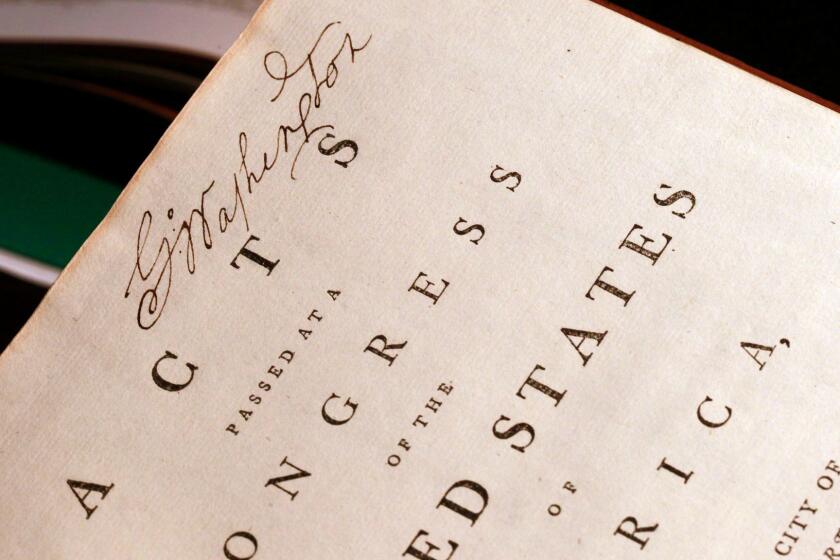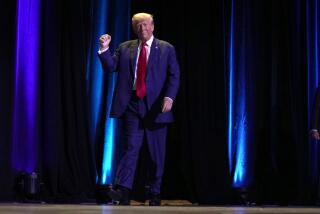Opinion: The judge who oversaw Michael Flynn’s case is fighting to rehear it. Good for him

U.S. District Court Judge Emmet G. Sullivan, who had the case of former Trump national security advisor Michael Flynn yanked out of his hands by a federal appeals court panel, is not through fighting. On Thursday, Sullivan’s lawyers asked the full U.S. Circuit Court of Appeals for the District of Columbia to rehear the case and reconsider the ruling of the three-judge panel. (On Friday the court stayed the panel’s order pending consideration of Sullivan’s petition.)
It’s vital that the full appeals court accede to Sullivan’s request, even if the ultimate result is that Sullivan accepts a motion by the Justice Department that he dismiss the charge that Flynn lied to the FBI about his conversations with Russia’s ambassador during the presidential transition. Flynn pleaded guilty in 2017, but later moved to withdraw his plea.
As I wrote last month, the overarching issue in this legal melodrama isn’t whether there is a good reason to dismiss the Flynn case — though there are powerful arguments against dismissal. Rather, the key question is whether Flynn got special treatment because he’s a friend of President Trump. (Never mind that in 2017 Trump tweeted that “I had to fire General Flynn because he lied to the Vice President and the FBI.”) Selective exoneration is just as disturbing as selective prosecution.
I don’t mean to minimize the importance of the legal arguments in this tangled affair. In their petition for a rehearing, Sullivan’s lawyers make specific points grounded in precedent about why a three-judge panel was wrong to issue an order known as a writ of mandamus to force Sullivan to dismiss the Flynn case.
Our cultural institutions face a moment of trial, including one great infringement on civil liberty: I, specifically, have only 724 Twitter followers.
Before the panel intervened, Sullivan was mulling whether to grant the Justice Department’s motion to dismiss the charge and had appointed a former federal judge, John Gleeson, to make the case against dismissal.
In a filing with Sullivan’s court, Gleeson said that the move to dismiss the case represented a “gross abuse of prosecutorial power.” He added that the government “has engaged in highly irregular conduct to benefit a political ally of the president.”
In any other administration, that claim might have sounded farfetched. But Trump has made it clear that he thinks the Justice Department ought to go easy on his friends and prosecute his political opponents.
Although Atty. Gen. William Barr pushed back at Trump’s tweeting about the Justice Department, he has intervened not only in the Flynn case but in the sentencing of Trump associate Roger Stone, supporting a softening in a sentencing recommendation for the self-described “dirty trickster.” (This week Barr reiterated in an ABC News interview that he thought the Stone prosecution was “righteous” and that he approved of the sentence a judge ultimately handed down.)
The insanely intricate legal issues in this unusual case more than justify a review by the full appeals court. But so does the perception that Flynn received special treatment.
More to Read
A cure for the common opinion
Get thought-provoking perspectives with our weekly newsletter.
You may occasionally receive promotional content from the Los Angeles Times.












